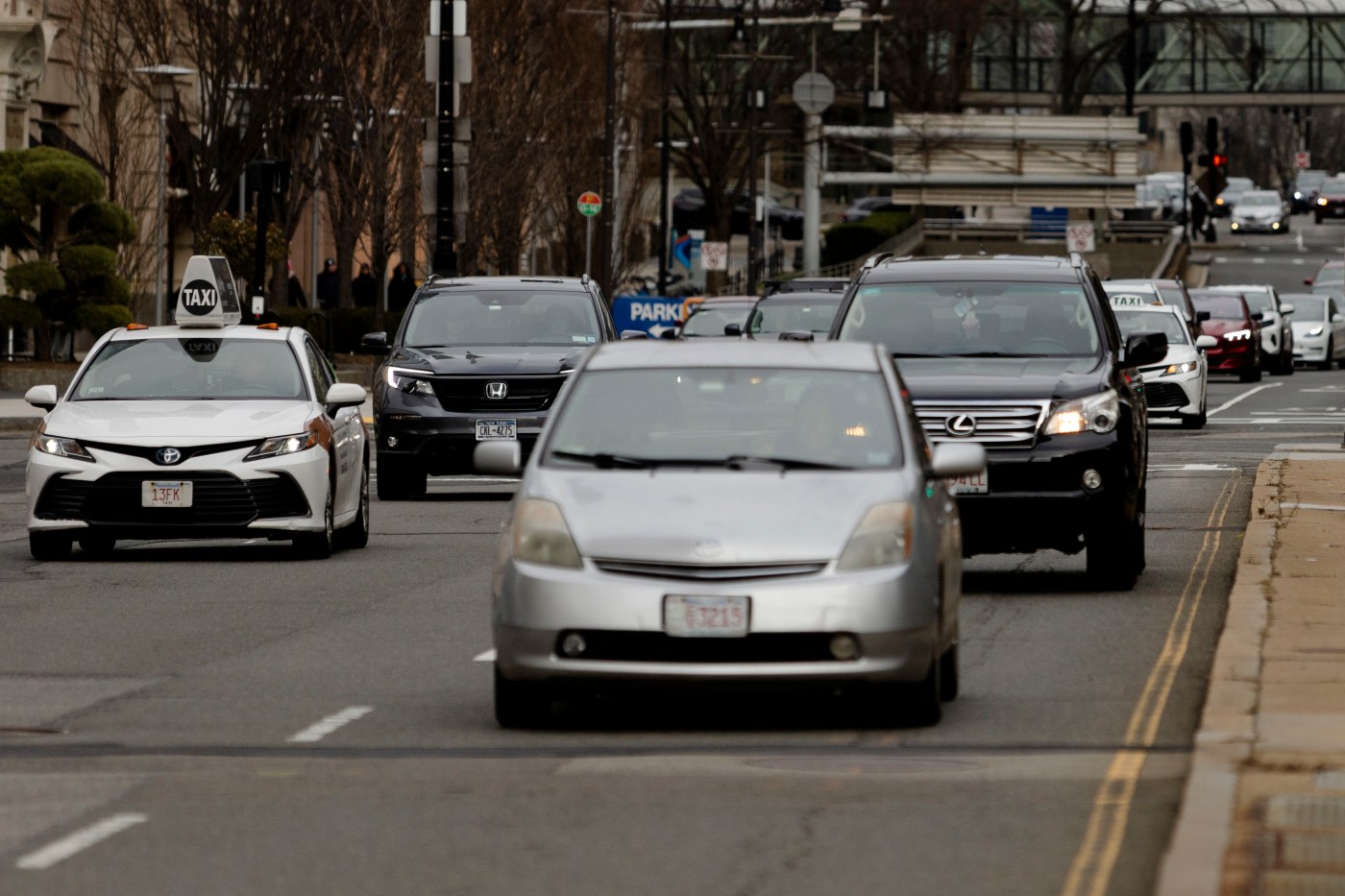
Report: Boston traffic decreased 10% over last year – still ranks 4th worst in U.S.
Despite some major strides in the last year, Boston traffic still ranks the 4th worst in the U.S. and 12th in the world, according to a new INRIX Global Traffic Scorecard released Monday.
“Overall, congestion resulted in drivers losing an average of 43 hours to traffic jams in 2024, equal to about one work week, costing $771 in lost time and productivity,” the INRIX report said of the U.S. “Nationwide, this sums to more than four billion hours lost, costing $74 billion in lost time.”
The report, compiled each year by the global transportation data and analytics company, details traffic and transportation data from 946 urban areas analyzed worldwide.
Boston ranks 4th in the United States and 12th in the world on the 2024 Global Traffic Scorecard, according to the INRIX data. In the U.S., the Commonwealth’s largest city ranked only behind New York, Chicago — both of which averaged 102 traffic delays per driver — and Los Angeles.
Compared to the nationwide results, the report found Boston drivers lost 79 hours and $1,414 sitting in traffic, resulting in $2.7 billion lost city wide.
Boston had the largest year-over-year decrease in traffic delay time for any city in the top 25 most congested American cities, the report stated.
“Despite Boston’s 10% decrease in delay between 2023-24, it still ranked in the top five most congested cities,” the INRIX report noted.
For 2023, Boston also ranked 4th in the U.S., with the typical driver losing 88 hours to traffic throughout the year. The city saw a big jump in traffic in 2023, up 14% from 2022.
The report noted some factors impacting traffic trends in the U.S., including a 8% decrease in work-from-home and a 6% increase in public transit use year-over-year in the U.S.
Public transit use is still down 24% from before the pandemic in 2019.
For Boston alone, the report noted U.S. Census data showing 8,000 more people people biked to work than in 2022.
“As workers return to the office, especially in tech-heavy metro areas, congestion is likely to build further,” the INRIX report said of future trends.
The average speed in Boston’s downtown for drivers was 13 miles per hour, tied for the second slowest in the U.S., INRIX found.
Boston also had the second busiest road, on I-93 southbound, ranked on the INRIX’s Busiest Corridors in the U.S. list. The traffic hotspot stretches from Charles River to Pilgrim’s Highway.
Drivers taking the road at 3:00 p.m. lost a total of 109 hours of traffic on that road alone in 2024, the report found.
Of all the urban areas included, INRIX stated 55% saw increased traffic delays compared to 2023 and 28% experienced a reduction.
“The movement of people, goods and services creates demand for road travel, but when demand exceeds the supply of road space, it results in congestion,” the report states. “This means that while traffic congestion has a negative impact to the economy, it’s a symptom of economic activity.”

